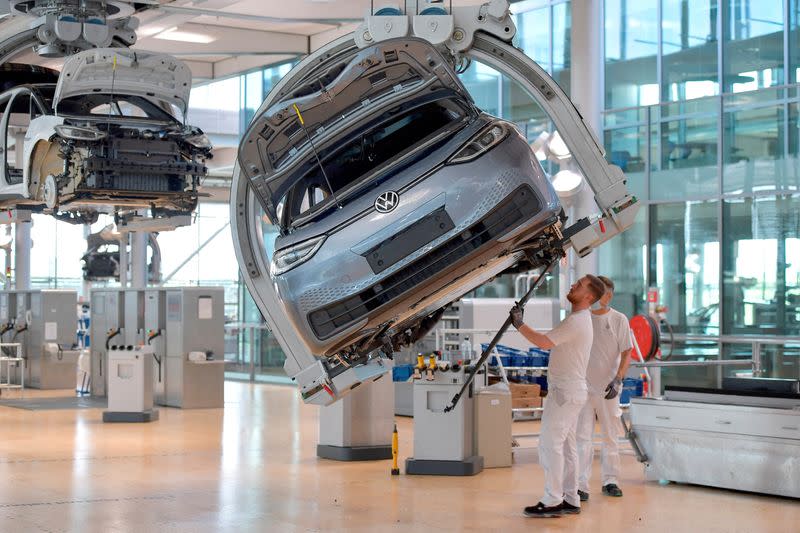German business activity back to growth after eight months -flash PMI
BERLIN (Reuters) - German business activity returned to growth for the first time in eight months in February thanks to easing supply bottlenecks and improved underlying demand, a preliminary survey showed on Tuesday.
S&P Global's flash composite Purchasing Managers' Index (PMI) rose to 51.1 in February from 49.9 in January, beating analysts' expectations of a reading of 50.4.
February was the first time since June that the indicator was above the 50 level that marks growth in activity.
The index tracks the services and manufacturing sectors which together account for more than two-thirds of Europe's biggest economy.
The services sector posted slight growth for the second month in a row, increasing to 51.3 from 50.7 in January, in line with analysts' expectations of a reading of 51.0.
Manufacturing, on the other hand, fell for the third month in a row, to 46.5 from 47.3, remaining in contraction territory for an eighth month and missing an expected reading of 48.0.
However, the output sub-index rose above the 50 mark, to 50.6, marking growth for the first time since May.
"Encouragingly, the increase in business activity was broad-based by sector," said Phil Smith, economics associate director at S&P Global Market Intelligence.
"However, whereas the upturn in services activity was at least partly demand-related, higher manufacturing output owed almost exclusively to a substantial easing of supply-chain bottlenecks, which merely allowed goods producers to catch up on backlogs of work," he said.
(Reporting by Miranda Murray; Editing by Susan Fenton)

 Yahoo Finance
Yahoo Finance 

